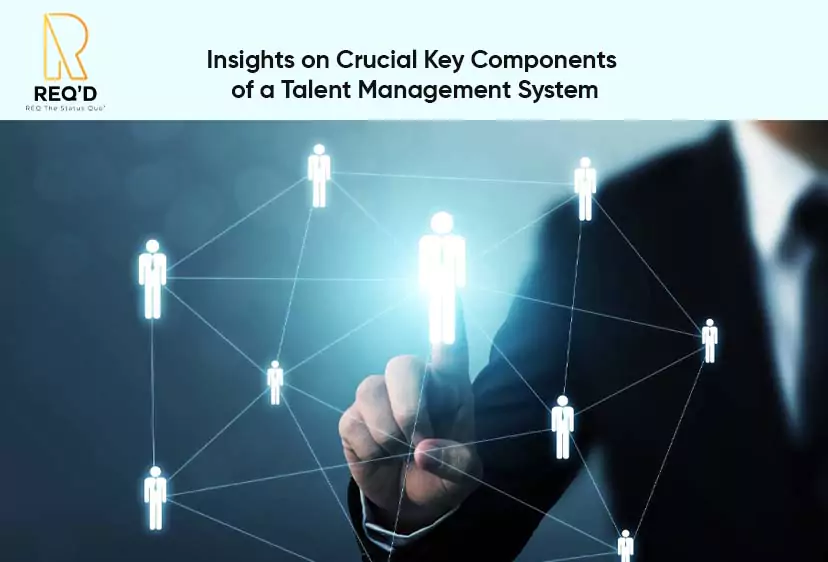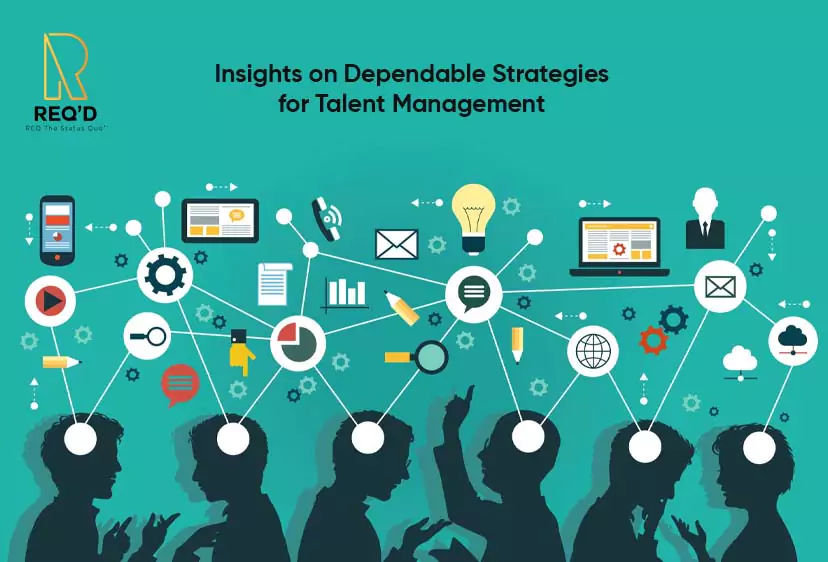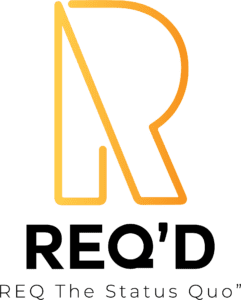Organizations now see human resource management significantly differently than in the past. Human resources departments used to be limited to handling hiring, payroll, and benefits; however, more and more businesses are realizing the importance of having a competent staff committed to and invested in the company’s objectives.
Businesses nowadays understand how important it is to hire people based on their potential rather than just their experience, to provide them with the right training, and to implement performance- and skill-development-focused initiatives.
This blog will explain the talent management system and cover its essential elements, enabling you to manage your human resources more skillfully and efficiently.
How Important is Talent Management and Development for a Company?
Organizations that manage employee talent can reap numerous benefits, such as
- The notable persuasive interests of the collaborator and the talents needed by the company.
- Ongoing enhancements to attain increased efficacy and productivity.
- Cultivating an environment where outstanding performance is valued in reaching company objectives.
- Enhancement of the workplace atmosphere and corporate culture.
- Increased contentment with their jobs on the side of the partners.
- Fewer employees are leaving, and more important talent is being retained.
Get to Know Everything About Talent Management Consultants!

Using talent management, employers can create a workforce that is as productive as possible and likely to stick around for the long run. This procedure can help raise the company’s overall performance and guarantee its competitiveness.
A talent management program invests in any organization’s most valuable resource: its people. To do this, companies may seek applicants with extremely sought-after skill sets, offer chances for further learning and growth, recognize and promote valuable team members, etc.
An integrated system of organizational procedures called “human talent management” aims to recruit, manage, develop, inspire, and keep workers. Stated differently, this practice aims to improve business results through employee collaboration in a way that ensures strategy execution and strikes a balance between the goals of the organization, the collaborators’ professional development, and the human approach.
Insights on Crucial Key Components of a Talent Management System

Management of talent is decisive. It would be a sophisticated yet useful design for the business’s medium- and long-term needs. The work is concentrated on assisting those who do specific important tasks for the company.
Organizations are realizing the importance of Talent Management Systems (TMS) in luring, nurturing, and keeping elite talent in the dynamic field of human resource management. Businesses must carefully choose a talent management system (TMS) that fits their needs and goals as the demand for efficient solutions to manage talent grows. The main characteristics of talent management and development will be discussed in this blog.
Employee Strategy Planning
Strategic workforce planning or employee planning is a company’s primary consideration. You set the objectives for your company and design your approach. After that, you may determine which worker is most appropriate to reach your goals for each function. You fill in the gaps by assigning workers to the proper responsibilities. You hire him even if he is not the best candidate. Since every company has various goals, strategic employee planning differs from meeting those objectives.
You should start looking within thresholding in your company. Your staff members have latent skills that need to be fully utilized. Do another round of interviews with your staff before hiring outside help. To learn about their secret skill sets, speak with them as friends rather than superiors. It can save you a significant amount of money.
Acquiring talent
Several tasks need to be completed by experts when you design your strategic personnel strategy. This is where recruiting and talent acquisition are different. While talent acquisition is looking for specialists for specific tasks, hiring is a technique to fill gaps.
But only some people possess leadership abilities and those who do tend to charge a premium for their services. It takes time because of this. There are moments when money is tight, and you want to spend only a little. If so, set this plan in motion a little ahead of schedule. In the best-case scenario, you’ll meet the appropriate man who will work with your terms because you’ll have more time to be patient.
Management of Performance
If carried out well, this procedure is essential to an organization’s advancement towards success. Direct contact between management and staff is a need for this method. Supervisors check in with employees to get job updates and determine how they are doing. To ensure everything runs smoothly, every worker must get in line and work at the appropriate rate. It is only possible if management is interested in the day-to-day reports, communicates with them, and assists and mentors them in carrying out their tasks effectively and efficiently.
Remember that your employees share your responsibility. If you let go of them, they’ll slide away from you instantly. Never let them go unsupervised. Attend to their questions and provide them with thorough responses. For better guidance, visit req-d.com/ and make your employee-company relationship stronger.
Learning and Inspiration
Learning gives you knowledge, and knowledge is power. Only some new hires will have the necessary training and expertise. You can hold educational workshops to teach them how to be useful members of the organization rather than just babysitting them for a month or two. They’ll get right into it as soon as they realize how they can benefit the business.
There is always a good employee. All they know is that they are lost. Present them. Thank you for your efforts. The important thing is motivation. Remember that an employee’s small efforts could have a big impact on you, so don’t undervalue them. Besides, it never hurts to be kind to someone.
Compensation and Appreciation
You won’t let your employees’ efforts go unappreciated if you genuinely value them. They deserve a little extra if they hit their goals and contribute to the company’s success. Additionally, by doing this, you show them that you value their work and haven’t missed anything.
Setting bonuses on milestones in advance is advised since it helps reduce the instances in which employees mistreat their employers and fail to achieve deadlines. You’ll notice the magic at work when employees understand there are incentives for meeting goals.
Professional growth
Giving your staff the same possibilities is essential to see growth and success in your organization. They are the reason your company is growing and expanding to new heights. Don’t let them remain stationary. Allow them to develop. Give them promotions and pay increases. Better roles should be adjusted for them. Make greater openings available. Transfer them to a better role that will further their professional development.
Planning for Succession
Someone will inevitably drop you in favor of a better opportunity at work. Their departure is not your fault. But, if you weren’t ready for it, that would be your fault. Plan backup if you don’t need to change your original plan. Identify your company’s important personnel and calculate the damage you would incur if they were to quit. Look for another person in your company who can cover the vacancy.
Employee Retention
A methodical and structured approach that concentrates on keeping an organization’s top talent and developing a friendly and welcoming work environment. Linked to a culture that encourages individuals to stay.
In light of the current state of the economy, businesses must reduce expenses. This sets up the perfect setting for creating a talent management system that maximizes each worker’s performance. But even now, this idea is still being worked out. Merely 5% of businesses assert they have operational programs for their people management strategies. REQ-d is the ideal choice if you’re seeking a reliable talent management consulting firm to work with!
Recognitions Programs
By using rules, incentives, and rewards, this approach enables frequent observation and stimulation of the individuals and groups that work together for the organization’s success.
A well-run employee appreciation program always encourages innovation among staff members, boosts output, and reduces attrition. An excellent approach for recognizing employees boosts staff motivation overall.
Onboarding Process
New hires might be employees on paper, but just because they accepted the offer doesn’t mean they have a close relationship with your business. One of the most important phases of the employee lifecycle is onboarding. A new hire’s experience “can make or break” because of it. It’s your company’s opportunity to welcome and prepare new hires so they will be terrific employees and more likely to stay.
Combined Hiring Resources:
A streamlined and successful hiring process can be achieved by a TMS that integrates seamlessly with recruitment tools. Seek features addressing scheduling interviews, application monitoring, and job posting. Increased visibility for job posts might also result from integration with social media and job boards.
Remarkable Perks of Talent Management System that Make it Stand Out!

Business thrives when people do. Companies that foster a culture that encourages workers to perform at their highest level may be able to:
Hire top talent that is in demand.
By putting their brand front and center in their talent strategy, businesses become employers of choice and draw talent independently.
Reduce the number of interruptions.
Unexpected departures result in coverage gaps, but with a talent pipeline, it’s easy to fill available roles and maintain smooth operations swiftly.
Boost output
Employees who receive ongoing strengths-based coaching can grow professionally and realize their full potential, which boosts productivity.
Cut expenses
Retaining and engaging current team members is typically less expensive than finding and training new ones.
Create Something New
Talented teams are more likely to maximize technological breakthroughs and create novel approaches to issue-solving.
Insights on Dependable Strategies for Talent Management

Companies now understand that they need an updated talent strategy, one that not only generates results but also aligns with business goals. Here are a few instances:
- Prioritize workplace culture above all else: Employees contribute more and work longer hours when content and feel like they belong.
- Offer numerous chances for advancement: Very few workers will stay in their current positions if they are not aware of their opportunities for professional advancement and are not given the necessary resources to achieve them.
- Make sure staff members are utilizing their strengths: Enhancing efficiency and engagement involves recognizing the unique contributions made by each person and assigning them to the jobs and tasks where they may make the biggest contributions.
- Pay employees equitably: If companies want to draw in and keep top people, they must have precise, up-to-date benchmarks for compensation data that are unique to their sector and area.
- Employing a diverse workforce may enhance issue-solving and demonstrate that an organization represents its community by offering fresh viewpoints and methods.
Final Words:
An organization’s capacity to draw in, nurture, and hold onto elite talent is strongly impacted by its choice of the best Talent Management System. Prioritizing elements like performance management capabilities, integrated recruitment tools, and other features can help firms ensure a complete and functional solution. In addition to meeting the organization’s immediate talent management needs, a well-selected TMS sets it up for future success.
The Talent Management Process has proven to be a highly effective approach for improved performance and better results. If done correctly, you will notice a significant shift in revenue. It’s a procedure that offers chances for the company and its workers. As we already know, employee efforts closely correlate with a company’s performance. Conversely, you are responsible for establishing workable plans to rally everyone to help you succeed in your company.








